Liberation Theology
Liberation Theology Liberation theology gives “preferential option for the poor*”, emphasizing liberation from social, political, and economic oppression, as central to the work of God and the anticipated (final) salvation.
Liberation theology:
was developed in the late 20th century, mostly by Latin American theologians in tandem to the Medellín [1] document.
takes the viewpoint of, and sides with, the poor in proclaiming the Kin(g)dom. *The “poor” can include those who don’t have what they need (materially), spiritually (lacking readiness to do God’s will), communally (lacking solidarity, including protesting against the conditions under which the poor suffer). Giving “preferential option” calls attention to what ought to be rst, due to segregation on any cause whatsoever (i.e. dominated peoples, exploited social classes, despised races, and marginalized cultures).
is the larger stream out of which Black liberation theology is connected. Other theological streams are also closely tied to liberation theology (womanist or queer theology, for example).
sees God as “God of the oppressed”, to borrow James H. Cone’s words. Jesus, who spoke truth, modeled siding with and was even oppressed himself, then becomes the lens through which we understand God and the invitation to join in the work of God in the world. “Truth is divine action entering into our lives and creating the human action of liberation.” [2] This is not only consistent with the gospel, but is the gospel of Jesus Christ.
is a theology of salvation, tied to a particular christology with an eschatological promise.
sees “Jesus as liberator”, to borrow Jon Sobrino’s words. Christ liberates us from sin (missing the mark of what God intends), which is foundationally what disrupts relationships and is the root of all injustice and oppression.
understands our (personal and communal) liberation is tied to our participation in the new life we have in Jesus the Christ as we live out the mystery of his death and resurrection, through communion with him, the basis for all human fellowship. This is the essence of “evangelism” - proclaiming through word and action that Christ has set us free. The church is to be a sign of the Kin(g)dom within human history. “The church is to be a poor church at the service of all, but paying special attention to the lowly of this world.” [3]
is lived out through base-level ecclesial communities, where understanding of faith and theological reection/work resides with the people - those who believe that God works through Jesus as liberator. Worship itself is a liberating event and celebration of freedom.
focuses attention on praxis - the action, re-action, re-action cycles of life and faith (or what has also been called “contemplative action”).
impacts development - the continuous creation or becoming - a new way to be human, through cultural revolution. This implies social and political action as well.
Resources:
A Theology of Liberation by Gustavo Gutiérrez
God of the Oppressed by James Cone
Jesus the Liberator: A Historical-Theological Reading of Jesus of Nazareth by Jon Sobrino
Adjacent Resources:
Pedagogy of the Oppressed by Paulo Freire
Basic is Beautiful by Margaret Hebblethwaite
In the Company of the Poor: Conversations Between Dr. Paul Farmer and Father Gustavo Gustierrez by Michael Griffin and Jennie Weiss Block
[1] Latin American bishops met (1968/Medellín) to denounce unjust social structures.
[2] Cone, James. God of the Oppressed. p.28.
[3] Gutiérrez, Gustavo. A Theology of Liberation. p. xli

